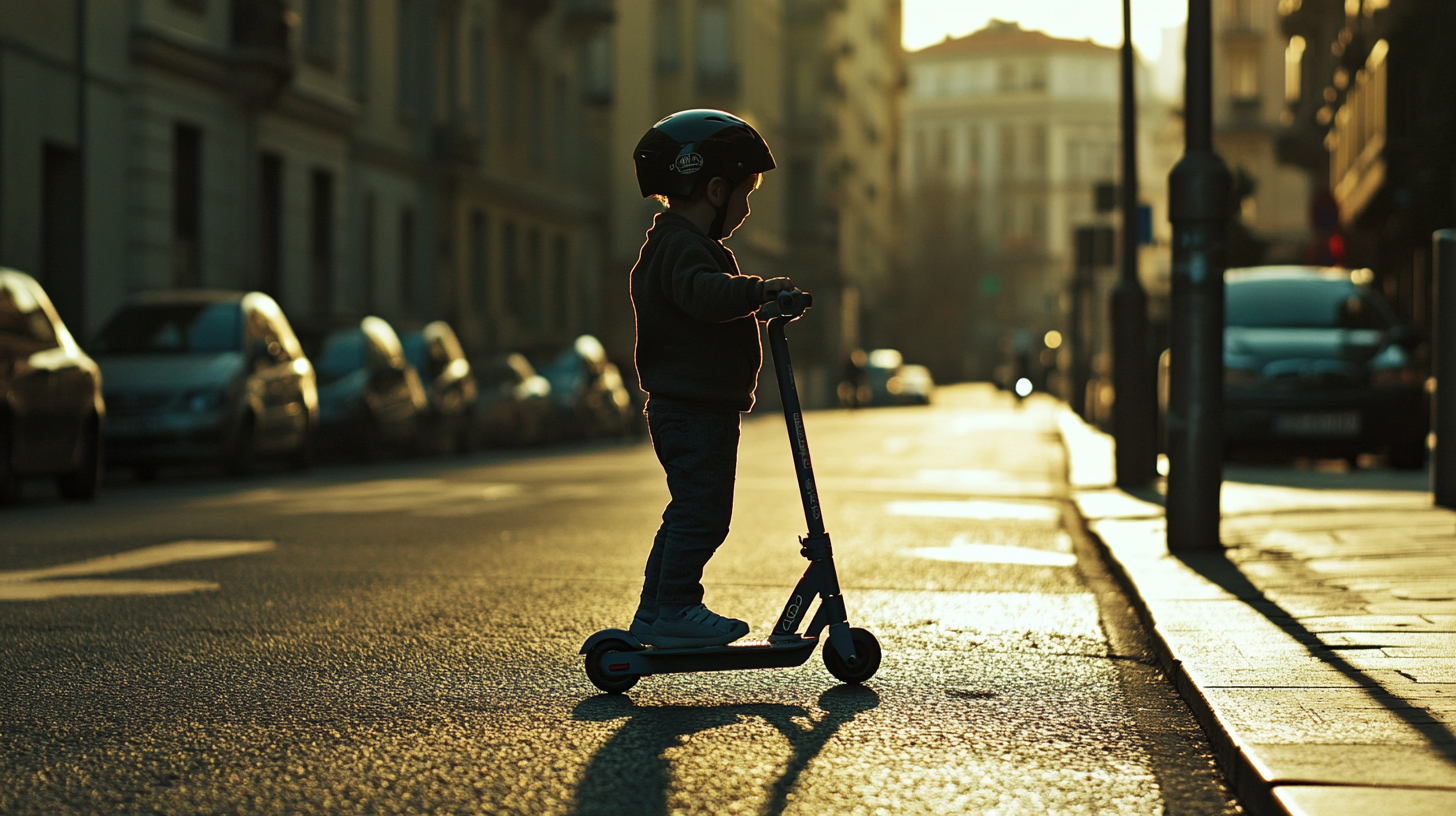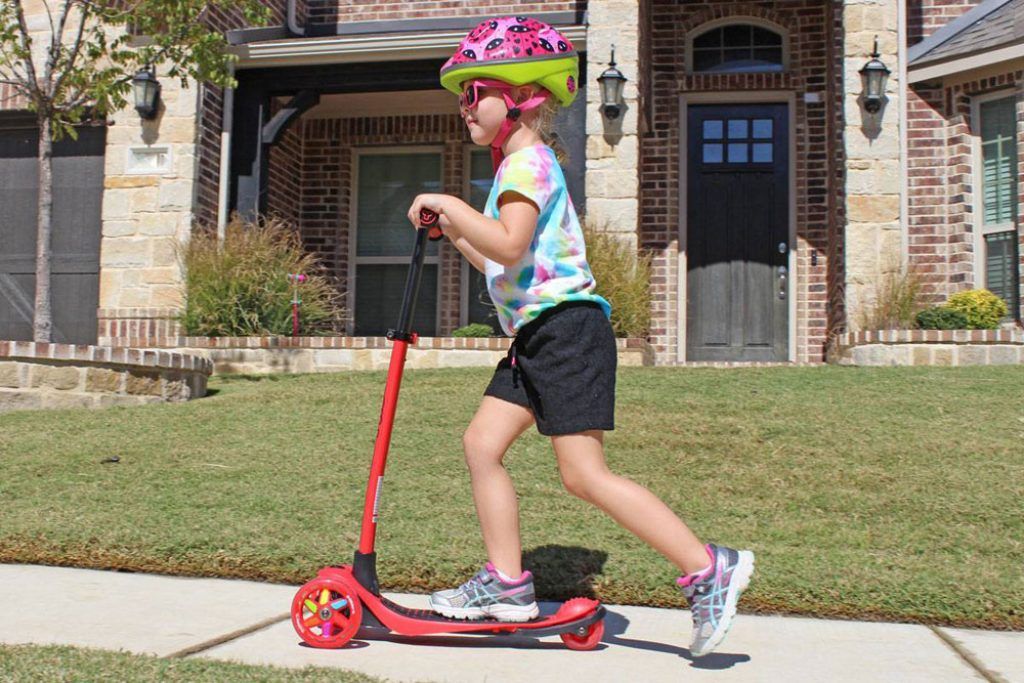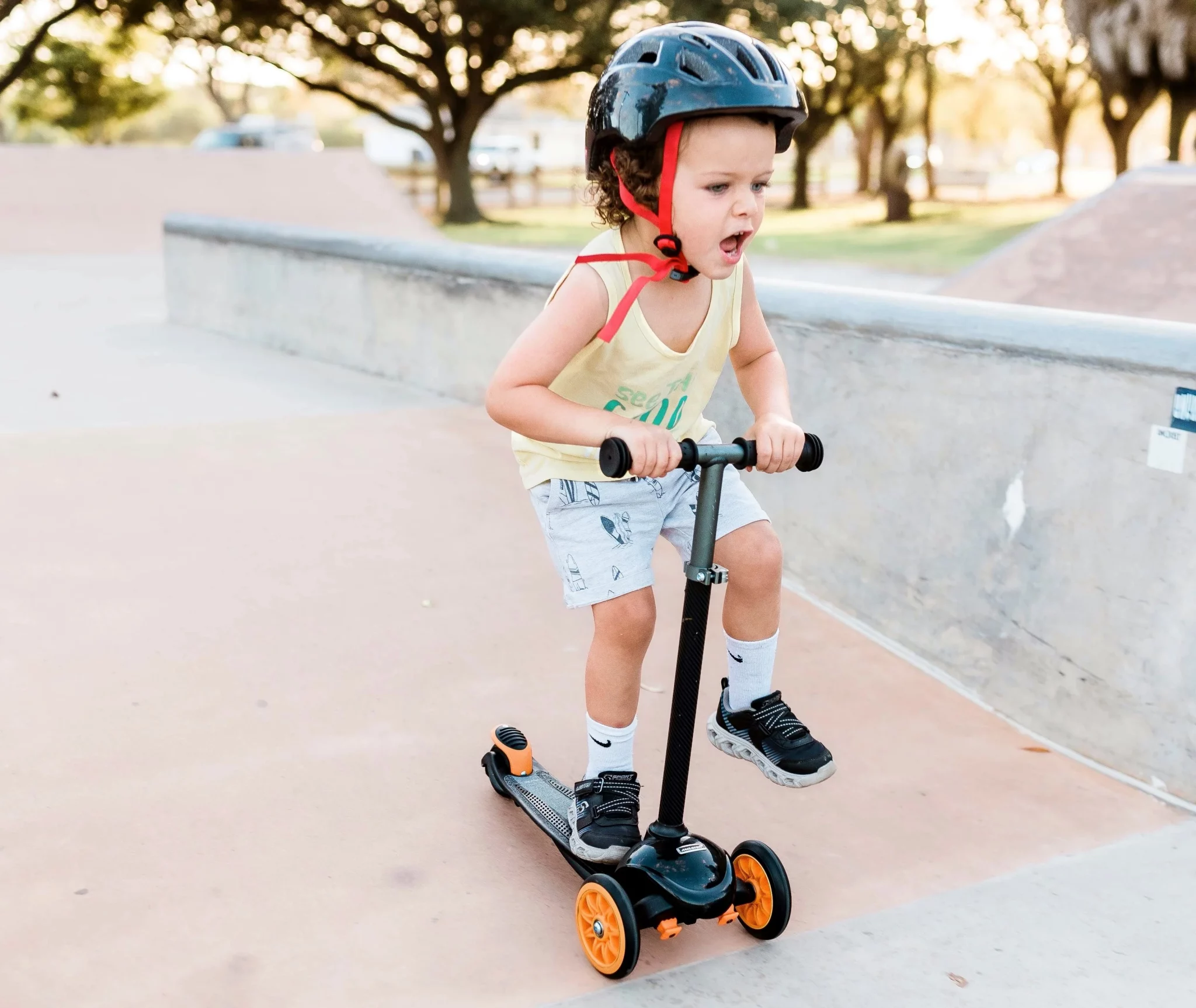
There’s no avoiding it – kids love scooters! They look cool, go super fast, and most importantly offer up plenty of fun in the sun. So, it’s natural for you to want to treat your little one to a scooter ASAP – especially when they come with the promise of lots of parent-kid bonding time and an excuse to get outside instead of spending the day watching kids cartoons or making a mess indoors. But are scooters safe for little ones? Keep reading our short and sweet guide to find out.
The details matter!
The type of scooter you choose will determine whether it’s safe for your little one or not. If your child is young, then you’ll definitely need to look for a three-wheeler to start with.
This gives them better balance while they’re still learning about core strength and prevents them from toppling over, which could lead to them hurting themselves.
Once your child has outgrown their three-wheeled scooter and you’re happy that they’ve mastered the skill of balance and coordination, that’s when you can think about upgrading them to a two-wheeler.
So, what age is safe for a three-wheeled scooter?

Most scooters that come with three wheels have a starting age of three years old because their height, weight, body size, and gross motor skills should be up to par now.
But don’t just take their age as a surefire sign, as every kid is different! You know your child best – if you don’t think their gross motor skills are up to the task quite yet at three years old, then hold off for a few more months.
Ideally, for a three-wheeler, your child should be able to run and walk with complete confidence and stability. You should also measure their height, as most scooters have a minimum height requirement so if they’re too short, they won’t be able to hold on and steer safely.
What about a two-wheeler?
The minimum age for a child to ride a two-wheel scooter is usually between five and eight years old. This is because they need the extra time to learn and perfect their balance and coordination skills for two wheels.
Three-wheelers help much more in this department, which is why they’re best for younger kids. The jump from three to two wheels can be a difficult one to master.
Is it easy to learn how to scoot?
A common problem parents run into when they try and buy a scooter for their young child is that their kid doesn’t take to the craft very easily. As adults with complete control over their bodies and cool strength, it can be difficult to understand how a child finds riding a scooter so challenging.
But it’s important to remember that many children don’t take to scootering straight away – it can take them weeks or even months to learn how to use their feet to propel them and their core to balance. If you buy a scooter too quickly and urge your child to ride it when they don’t understand how to, you can be left with a very frustrated child who is put off by the idea of their new scooter.
Our advice here would be to encourage them to ride their scooter, but don’t force them. As we’ve said, scooters are fun! Once they’re ready to learn and confident enough to push themselves, they’ll get the hang of it and be flying around the living room in no time. Luckily, most scooters can be adjusted so that they won’t outgrow their current model while you’re waiting.
Always check the age requirements before buying!

While we might recommend the age of three for three-wheeler scooters, it’s always super important that you check the minimum age requirement listed by the manufacturer.
Some scooters look like they should be safe for young kids while actually having a minimum age of eight years old, and the manufacturer will have tested the safety according to this age only – so don’t think you know better than them!
On the other hand, some scooter manufacturers don’t list minimum age requirements giving you complete control on whether you think your child is ready or not. Again, we recommend using these with caution, as a lack of age requirement may mean that it hasn’t been safety tested for any age.
Safety gear is paramount for all ages
Remember, you’re never too old for safety equipment! Helmets, wrist guards, and elbow and knee pads are essential for kids of all ages – and even adults if you want to set a good example.
The younger children are, the more likely they are to take a tumble, but even older children who are still getting used to a new scooter might slip a few times.
Many areas in Australia have laws surrounding the safety equipment used by children when scootering, so make sure you check these out for your local district before hitting the skate park.
Final thoughts
Have we convinced you to get your little one a scooter yet? Then why not see the latest deals on kids scooters at Whiz Kids and pick out their new favourite toy?
Most scooter manufacturers will list a minimum age requirement for their scooter, but many three-wheelers can be used by children aged three and above. Two-wheelers require better balance and coordination skills, which is why they often come with older age requirements of between five and eight years.
The most important things to remember are to not rush your child, and that you know them best! If you think they’re ready, why not buy them their first scooter to practise on inside first?
